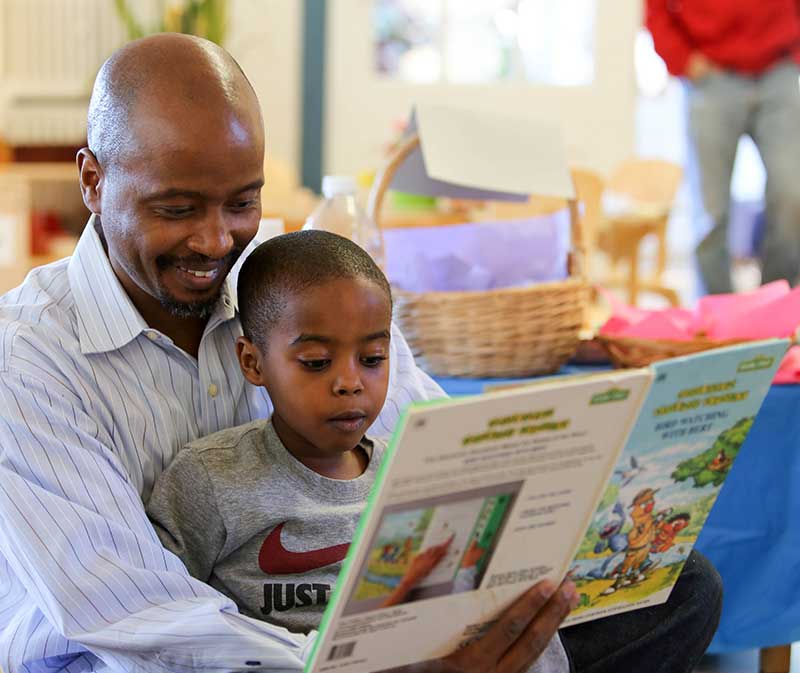Article from MetroKids, Wednesday, August 24:
It’s never too early to prepare your child to read. Instead of formal reading instruction, a combination of reading to your child and word games will do the trick, says Polly Hancock, lower school director of academic support at The Shipley School in Bryn Mawr, PA. “It all needs to be kept fun,” she advises.
“From birth, parents do things that prepare children to read,” says Kelly Banik, lower school director at Moorestown Friends School in Moorestown, NJ. These activities have a strong correlation with greater later reading success, Banik notes.
“As soon as we engage them with stories, that’s when they begin to learn to read,” says Dr. Billie J. Enz, PhD, past president of the International Literacy Association’s Family Literacy Commission. “Read daily with kids from birth on,” recommends Banik, but keep it short.
Elizabeth Pei, mom of a 4-year-old student at Moorestown Friends School has built reading time into her family routines. “Five minutes before nap time, or five minutes after dinner. With little ones that’s all it takes,” she says.
Sometimes parents read only fictional children’s stories, says Banik. “Think of reading broadly,” she recommends. For instance, you could read:
- a menu at a restaurant
- instruction booklets
- emails from relatives
- road signs while driving
Also, don’t be afraid to read the same favorite book over and over again. “They are picking up something different each time,” says Hancock.
Beyond reading, you can expose preschoolers to words and help develop their ear for reading in other ways, says Sarah Williams, early childhood education director at the Wilmington Montessori School in Wilmington, DE.
To get little ears trained to hear different sounds within words, try these activities:
- Play rhyming games
- Clap out syllables in words
- Listen for beginning sounds
- Listen for ending sounds
Williams says if the emphasis is on fun, preschoolers will pick up what they need. If they sense they are being put to work, the pushback can be extreme, she notes: “Backfire happens when there’s extra pressure. You can’t push against their natural development and interest in reading.”
“I don’t push it if they’re not paying attention, or if they’re talking while I’m reading,” says Jennifer Devine, a parent of two young students at The Shipley School. “I don’t want it to feel like a chore, and you can’t develop a love of learning if you’re having a miserable experience,” she says.
If they’re not enjoying themselves, stop the reading session, advises Enz.

